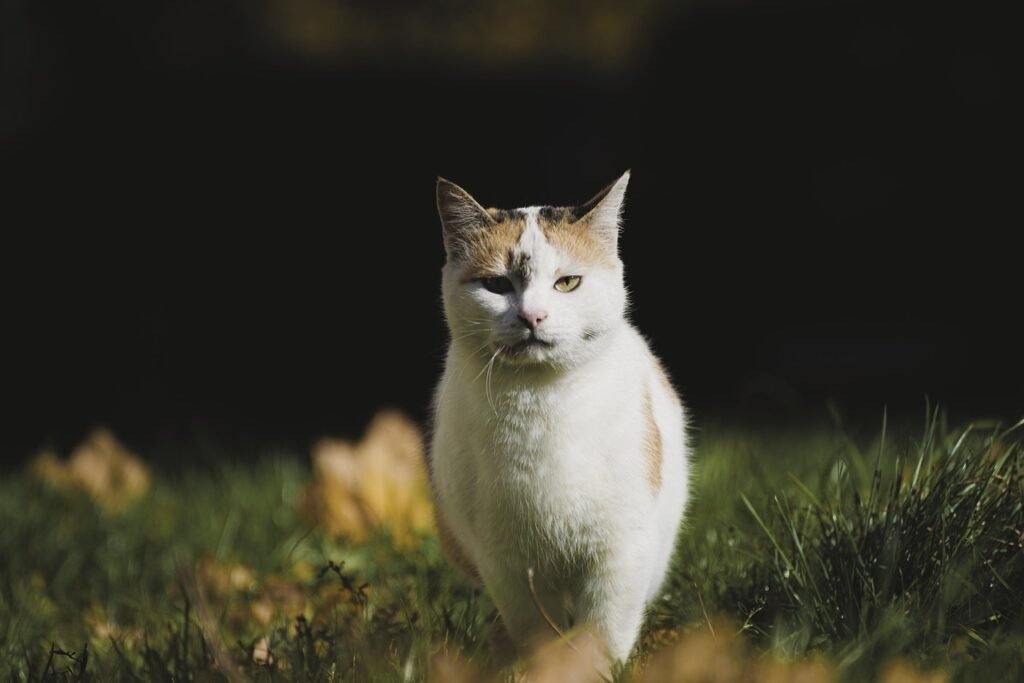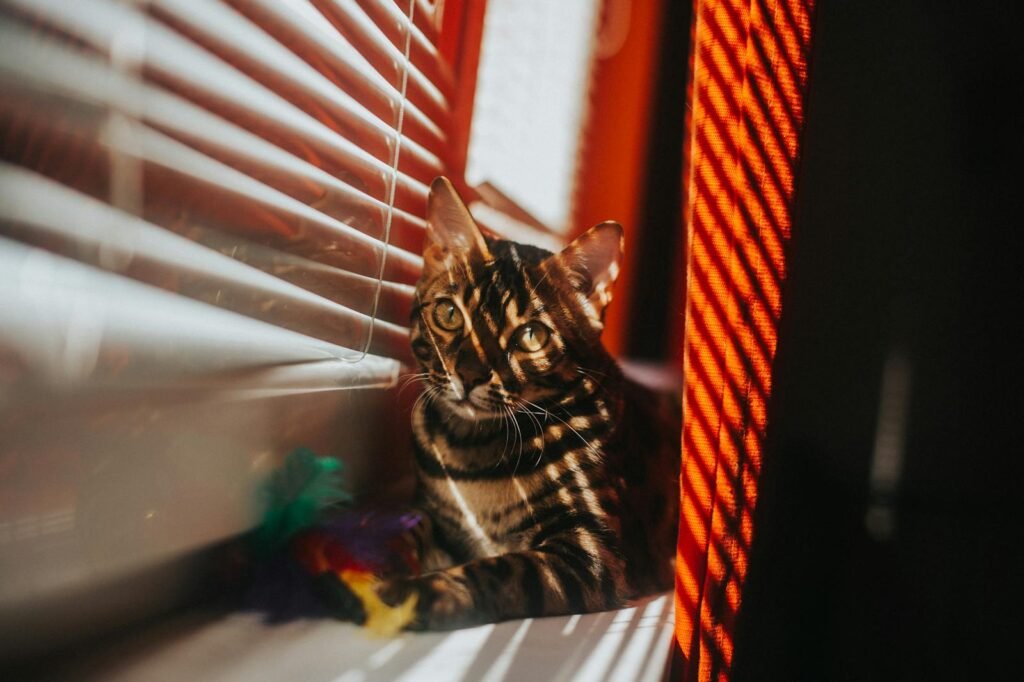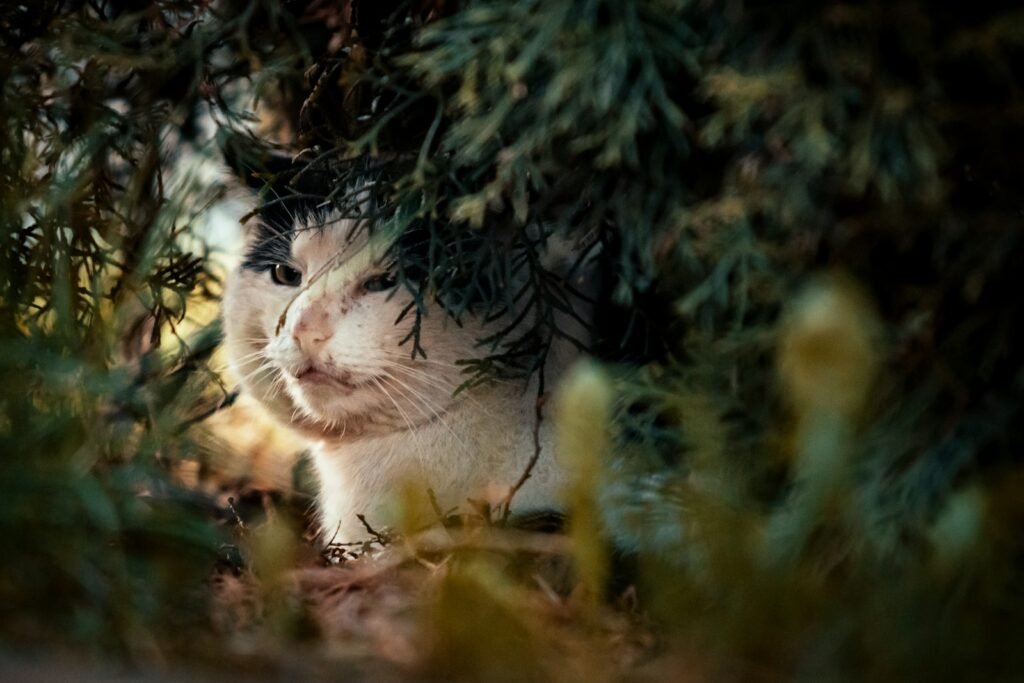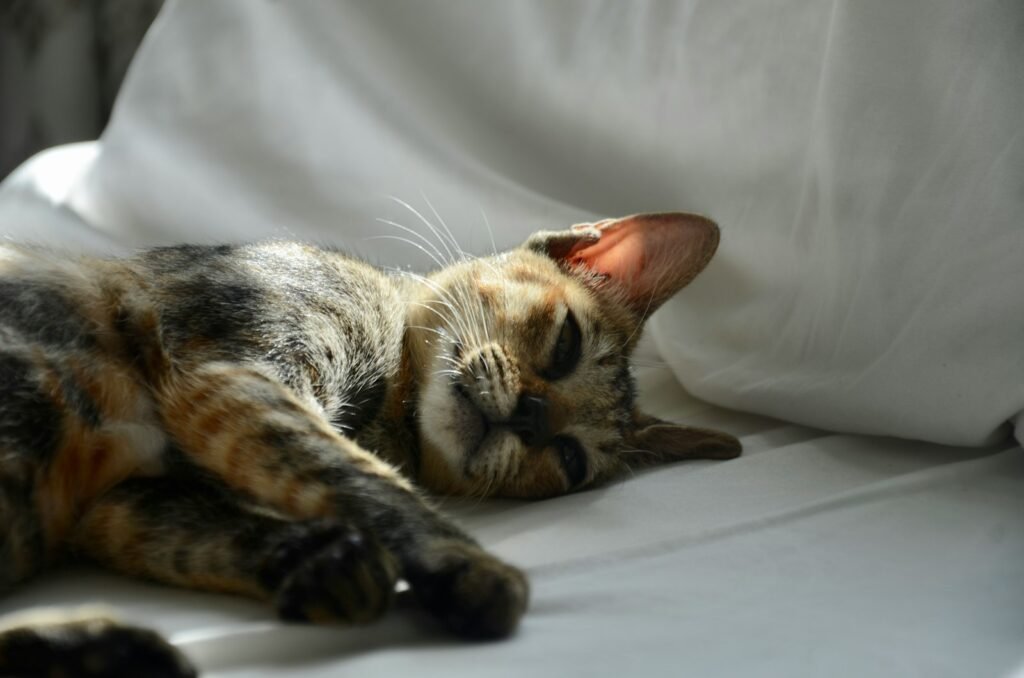Cats often present themselves as stoic and unfazed creatures, but like us, they can experience stress from a variety of sources. Understanding these stressors is crucial for ensuring the well-being and happiness of our feline companions. Some stress triggers are obvious, while others are surprisingly subtle. Let’s explore seven unusual things that can cause stress in cats and how to manage them.
Certain Scents

While cats have a reputation for being discerning when it comes to smells, some scents can inadvertently stress them out. Strong odors from essential oils, particularly those from citrus, eucalyptus, or peppermint, can be overwhelming for cats. Their refined sense of smell makes them more sensitive to these scents, which they might associate with danger or discomfort. To keep your cat stress-free, it’s a good idea to use these scents sparingly in their environment.
Loud Noises

Cats have acute hearing and are naturally attuned to ambient sounds in their environment. Sudden loud noises, such as fireworks, thunderstorms, or construction work, can be particularly distressing for them. Even household sounds, like a vacuum cleaner or a blender, might cause anxiety. When possible, try to minimize exposure to such noises by providing a quiet, cozy space where your cat can retreat during noisy episodes.
Unfamiliar Humans

Much like some people are introverted and shy, cats can be wary of strangers. Unfamiliar visitors in your home can make your cat feel insecure or threatened, leading to stress. This is especially true for cats that have not been well-socialized from a young age. Allowing your cat to approach new people on their own terms can reduce stress and help them feel more comfortable.
Changes in Routine

Cats thrive on routine and familiarity. Changes in their daily schedule, such as feeding times, can disrupt their sense of security and lead to stress. Even subtle changes, like rearranging furniture or altering their sleeping areas, can be unsettling. Maintaining a consistent routine with feeding, playtime, and rest can help reduce their anxiety.
Other Animals

Introducing another pet into your household can cause significant stress for your cat. Cats are territorial creatures, and the presence of a new animal may make them feel threatened. To ease the transition, introduce new pets gradually and monitor interactions closely to ensure that your feline feels safe and secure in their home environment.
Inadequate Litter Box Maintenance

Cleanliness is paramount for cats when it comes to their litter boxes. An unclean litter box can be a significant source of stress, leading to undesirable behaviors like inappropriate elimination. Regular cleaning, providing the right type of litter, and ensuring accessibility can help alleviate this stress.
Being Ignored

Though often perceived as aloof, many cats crave attention and companionship. Extended periods of being ignored can lead to feelings of isolation and stress. Regular interaction, grooming, and play can ensure that your cat feels loved and noticed. If you’re busy, even short, frequent interactions throughout the day can make a big difference.
These stressors, while unusual, can significantly impact a cat’s mental and physical health. Being attuned to these subtle cues and changes in your cat’s behavior can help you create a nurturing environment that supports their well-being.
Understanding and mitigating these stressors will not only improve your cat’s quality of life but also deepen the bond you share with your feline friend. Keeping their needs and instincts in mind ensures a harmonious and happy home for both you and your cat.
Hi, I’m Bola, a passionate writer and creative strategist with a knack for crafting compelling content that educates, inspires, and connects. Over the years, I’ve honed my skills across various writing fields, including content creation, copywriting, online course development, and video scriptwriting.
When I’m not at my desk, you’ll find me exploring new ideas, reading books, or brainstorming creative ways to solve challenges. I believe that words have the power to transform, and I’m here to help you leverage that power for success.
Thanks for stopping by, Keep coming to this website to checkout new articles form me. You’d always love it!






